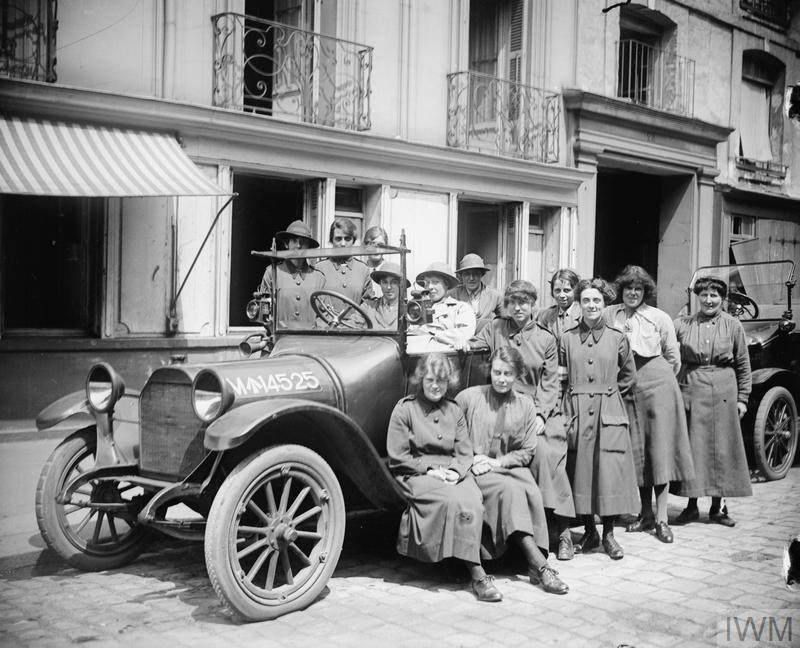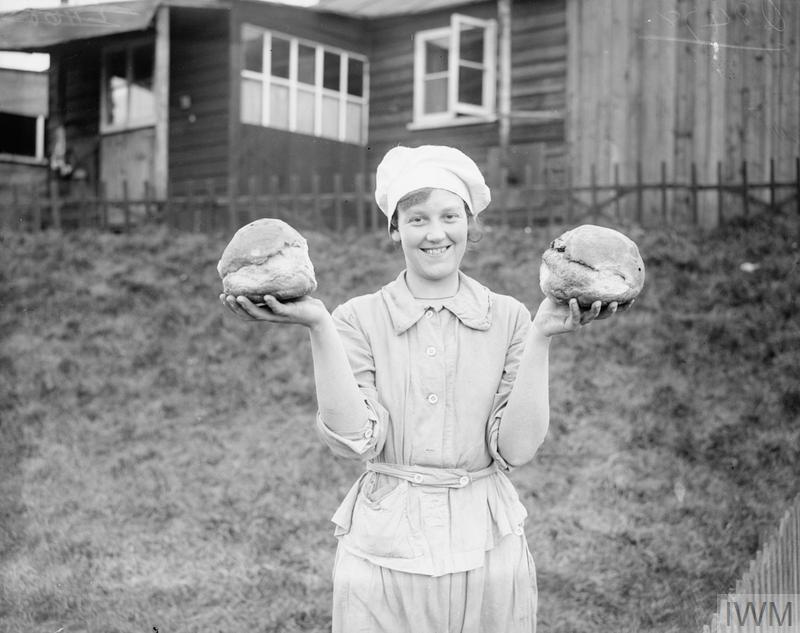In the second of a two-part blog, Churchill College By-Fellow Sharon Mather shares Anne Seagrim’s memories of growing up in Dieppe during the First World War.
Cyril and Kathleen Seagrim were thrilled when their daughter Anne was born 2 May 1914, but their peaceful idyll was shattered just three months after her birth when, on 3 August, Germany declared war on France, followed by Britain’s declaration of war on Germany. Whilst other English residents left Dieppe at the outbreak of the First World War, Cyril and Kathleen were determined to stay.
The steam ships that had once carried tourists were now requisitioned to carry troops, stores and munitions, as well as lay mines and serve as hospital ships. On 29 November 1914 King George V sailed from Newhaven to Dieppe in order to make his first visit to the troops on the Western Front. Throughout the First World War Dieppe served as a base for the British troops. The base comprised of a depot for motor transport, workshops, stores, a bakery, a veterinary hospital, a troop hospital and a Prisoner of War camp.

Despite the intervention of war, and the best efforts of a series of governesses, Anne Seagrim enjoyed a relatively free and relaxed childhood. Being so young at the time, her memories of the war itself were vague; but she recalled her father speaking Urdu to Indian troops who were billeted at the farm, as well as the sound of air raids – along with the piercing sound of an aeroplane crashing into a nearby field. The presence of a field bakery gave Anne her first taste of white bread; she had only ever eaten black bread (a mixture of rye and wheat flour).

When the war ended Anne and her siblings revelled in a bucolic existence on the farm with little parental interference. She learned to milk the cows and to make butter, and called in the pigs from the wood each day with a small hand bell. The entire family took part in the harvest: tossing the hay, and watching the steam-driven harvester separate the grain from the straw ready to be made into bales.
They also picked apples for cider making, pressing them into enormous wooden vats, swinging gleefully on the long handles as the presses turned. The Seagrims (parents and children) drank cider as an alternative to the water that had to be hand-pumped out of wells. They were veritable Normandy farmers making ‘champagne’ cider and eau de vie for special occasions.
The Saturday market in Dieppe was a great attraction. There were stalls crammed with colourful, fresh vegetables, fruit, and flowers, and noisy livestock that filled the Grande Rue and the Place du Quesne. Whilst Cyril Seagrim haggled over the cost of the produce, his children raced up and down the street unchecked.
One Saturday an elegantly dressed, elderly lady waved her walking-stick at Anne with shouts of ‘Go away you little wretch – go away, go away you noisy little brat.’[1] It was none other than Lady Hozier.
[1] Anne Seagrim, An Improbable Career, privately published memoir, (London: The Print Place, 1999), p.5.
By Sharon Mather, Churchill College By-Fellow and Author of Edward Marsh: A Life of Poets, Painters and Players, 2023.
Top image: Anne Seagrim in New York, in the early 1950s, The Papers of Anne Seagrim, SEAG 1/16.


